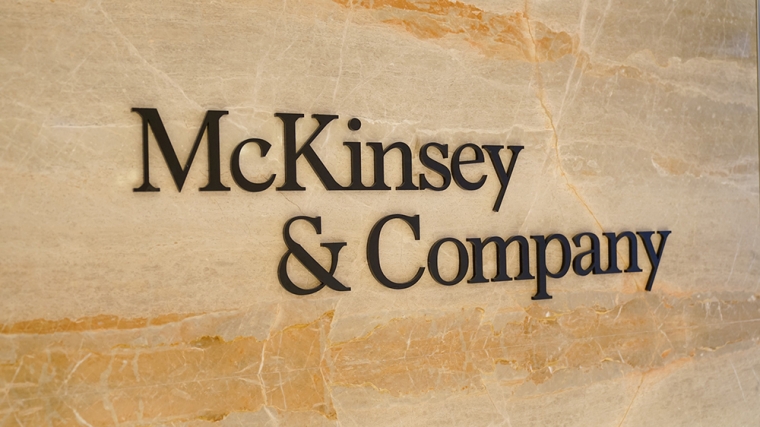
By Mariana Mazzucato and Rosie Collington
In recent years, McKinsey & Company has become a household name – but for all the wrong reasons. One of the “Big Three” consulting firms, its work for major corporations and governments has increasingly become a source of scandal and intrigue around the world.
In the United States, for example, McKinsey agreed to pay nearly $600 million for its role in the deadly opioid epidemic, following allegations that it had advised Purdue Pharma on how to “turbocharge” sales of OxyContin. In Australia, the firm’s work on the previous government’s national net-zero strategy was criticised as a flagrant attempt to protect the country’s fossil-fuel industry. And in Puerto Rico, a New York Times investigation found that McKinsey’s investment subsidiary, MIO Partners, was positioned to profit from the very same debt that its consultants were helping to restructure.
This list could go on and on. But as we show in our new book, The Big Con: How the Consulting Industry Weakens Our Businesses, Infantilizes Our Governments, and Warps our Economies, such scandals are only the tip of the iceberg. While there are a few bad apples in every company, the real problem lies with the consulting industry’s underlying business model.
In 2021, the global market for consulting services was estimated to be US$700-900 billion. Yet despite the industry’s growing role in economic and political life, its activities are hardly ever viewed as what they are: symptoms of deeper structural problems with contemporary capitalism. The consulting industry may not be wholly responsible for the financialisation of the economy, corporate “short-termism,” or the gutting of the public sector, but it certainly thrives on them. Throughout the history of modern capitalism, the Big Con (as we call the industry) has been there to surf each new wave of dysfunction.
In government, big consultancies promoted and profited massively from the push toward privatisation, management reform, private financing, outsourcing, digitalisation, and austerity. In business, they helped to entrench new models of governance, from the spread of cost accounting and multidivisional corporations in the decades after World War II, to the rise of King Shareholder in setting priorities and allocating resources.
Today, the consulting industry is promising to reverse the very problems it helped create – hence the boom in new contracts to provide “environmental, social, and governance” (ESG) advice. Not surprisingly, this new line of business has come with all kinds of conflicts of interest. McKinsey, for example, has previously advised at least 43 of the 100 biggest polluters.
The role played by consultancies in the COVID-19 crisis was especially revealing. During the pandemic’s first two years, governments spent enormous sums on consulting contracts, but the results were dubious at best, and harmful at worst. In France, consultancies were deeply involved in the country’s vaccination drive. Yet far from being an exemplar of efficiency, the French program was widely seen as a disaster. By early January 2021, a mere 5,000 doses had been administered, compared to 316,000 in Germany and 139,000 in Spain (all three countries started their programs around the same time).
Sometimes, governments hire consultants to fill gaps in their own capacity. Unfortunately, awarding consultancies with wide-ranging, lucrative contracts has simply become the default approach, even for areas that should obviously fall under the government’s remit. Thus, in 2020, one British Conservative peer complained that civil servants are routinely deprived “of opportunities to work on some of the most challenging, fulfilling, and crunchy issues,” and that the “unacceptable” reliance on private consultants was infantilising the civil service.
When everything is outsourced, government agencies cannot develop the internal skills and knowledge needed to manage new challenges. This should concern all of us. Epidemiologists warn that the next global pandemic is a matter of “when,” not “if.” We urgently need to invest in governments’ and public-health agencies’ ability to detect new outbreaks and contain them before they can spread.
After all, the big consultancies should not be trusted to have the expertise for which they are hired. As the New York Times found, citing a researcher from the French National Center for Scientific Research, the consultancies behind France’s shambolic vaccine rollout “tended to import operating models used in other industries that weren’t always effective in public health.”
The growing reliance on big consultancies with extractive business models stunts innovation and state capacity, undermines democratic accountability, and obfuscates the effects of political and corporate actions. In an age of climate breakdown, these consequences have become existential. We all pay the price when public funds and other resources are wasted, and when decisions in government and business are made with impunity and little transparency.
Making matters worse, well-intentioned, intelligent young professionals have increasingly been lured away from public service by the promise of purposeful (and higher-paid) work in the consulting industry. (Though, fortunately, there are indications that many young consultants are becoming disillusioned with the sector.)
Battling any addiction begins with acknowledging the problem. Only then can we reduce our dependency. At a time when more people than ever are questioning economic orthodoxies and searching for alternatives, unpacking the Big Con’s role in today’s economy can point the way to solutions. To build a better-functioning economy, we must invest in state capacity and know-how, bring public purpose back to the public sector, and rid the system of costly, unnecessary consulting-industry intermediation.
Around the world, governments are waking up to the dangers of an overreliance on consultancies – and of the form of capitalism that they have helped bring about. Reformers are developing innovative new governance models, from in-house public-sector consultancies to policy “labs” and local community-oriented procurement programs.
Transforming our economies in the public interest requires changing how we think and talk about the role of government. We must stop seeing the state as merely a market rescuer and de-risker, and recognise it as a critical economic actor. Private organisations and individuals with genuine knowledge and capacity can still be valuable sources of advice. But they should advise and “consult” transparently from the sidelines, rather than being put in charge and paid regardless of how they perform.
Mariana Mazzucato, Founding Director of the UCL Institute for Innovation and Public Purpose, is Chair of the World Health Organisation’s Council on the Economics of Health for All and a co-author (with Rosie Collington) of The Big Con: How the Consulting Industry Weakens Our Businesses, Infantilizes Our Governments, and Warps Our Economies (Penguin Press, 2023). Rosie Collington is a PhD candidate at UCL’s Institute for Innovation and Public Purpose. Copyright: Project Syndicate, 2023, published here with permission.
12 Comments
This lady is a bit like Kate Raworth; legitimately moving the conversation as far as possible WITHIN the tent.
The problem is one of remaining time, vs inertia; the flood approacheth the tent.
After which, the system which 'paid' those consultants, is gone.
Consultants: “People who come down from the hills after a battle and shoot the wounded.”
"People who you pay to tell you the time by your own watch"
Here is how a retired city council staff member explained it to me about eight years ago, I think. I think also it has got worse. Consultants are always engaged with a disclaimer absolving them of any responsibility if the project, function or whatever should go pear shaped. In which case, if that should happen, the council can blame the consultants but more importantly, no one can be held accountable. It’s a win, win and the cost doesn’t matter because only other peoples’ money is being spent. Ye olde motto “Omnes Auctoritate, Nihil Responsabilitas.”
"In government, big consultancies promoted and profited massively from the push toward privatisation, management reform, private financing, outsourcing, digitalisation, and austerity. In business, they helped to entrench new models of governance, from the spread of cost accounting and multidivisional corporations in the decades after World War II, to the rise of King Shareholder in setting priorities and allocating resources."
...& in doing so, they enabled the global population to enjoy such a generally improved std of living that it trebled since WW2.
You omitted one essential word from that last sentence...
temporarily
as implied in the word
overshoot.
Overshoot all the bloody consultants costing us taxpayer $ 1 billion annually ...
... then , re-load , and overshoot this freaking useless government who hired them all ...
I'd eliminate those who choose not to learn.
That would mean no National Party - their head twit just announced something Bill Rowling would have been proud of 4 decades ago.
He might get a job luxing.
If his luck's in.
They haven't advanced since Brownlee and his 'clean coal' b---sh-t.
The issue within government is that management will get consultants on board to offload risk to themselves so that when projects eventually blow the budget and run overtime, the consultants can be the fall guys and management keeps their role snug. It comes down to human behaviour: consultants mean budgets look better in some regards since they aren’t paid sick days, leave etc and this makes management look better, however the main issue being that they are used as a scapegoat for incompetency. I can attest to seeing this from working within 2 ministries over the last decade
Good article and good observation interesting1234.
Consultancies, the "non-technical" kind particularly, have simply positioned themselves globally to take advantage of inefficiencies within large organisation (public agencies, corporations).
Take Wellington City Council for example, a mate who worked in their accounts team said they pay for "rainbow" advisory services (diversity & inclusion) at higher hourly rates than for procuring geotechnical advice.
I guess the council sees being called out for not being too woke as a bigger threat than strengthening the city's built environment for when the next big one hits.
At a social gathering over the New Year there was a person working part time for a company used by the govt. as consultants on various policies and other matters. When asked whether it tails off with a National govt the response was yes for a while and then its back to normal and I take normal to mean a National govt is not much different from Labour.

We welcome your comments below. If you are not already registered, please register to comment
Remember we welcome robust, respectful and insightful debate. We don't welcome abusive or defamatory comments and will de-register those repeatedly making such comments. Our current comment policy is here.